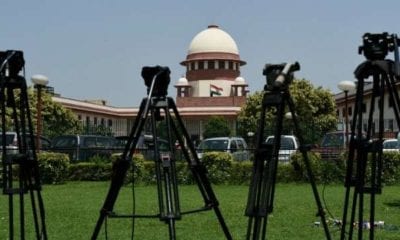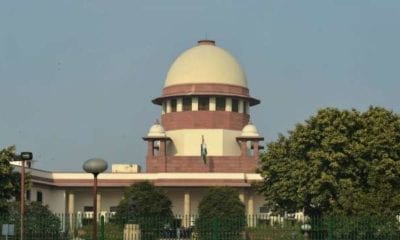India
May limit wedding guests, Delhi government tells Supreme Court

The Delhi Government told the Supreme Court on Tuesday that it is in the process of formulating a policy to put curbs on “vulgar” display of food at lavish weddings organised at the Capital’s farmhouses and motels.
The submission came in response to a Court order on December 6 raising questions over how farmhouses were allowed storage capacity of one lakh litres water when residents in the city bared got water to drink. The Court even commented on food being wasted in excess at these functions and wondered if the state favoured the mighty and the rich.
Appearing before a bench headed by Justice Madan B Lokur, Delhi’s Chief Secretary Vijay Dev told the Court about a two-pronged strategy being contemplated by the government. He said that the state government and the office of the Lieutenant Governor were equally concerned about how there is “vulgar display” of water and food, which are otherwise scarce, at functions held at farmhouse and motels. Due to these artificially enhanced demands, the public needs suffer, he said.
He shared certain highlights from the policy under preparation which could include a guest control order, caterers who supply food at these venues to link up with NGOs for supplying excess food, and regular inspections to ensure the food served at these events is not stale or leftover of the previous day. This fact even shocked the bench, also comprising of Justices Deepak Gupta and Hemant Gupta. The bench asked the Chief Secretary to ensure proper inspections are conducted by Food Inspectors to prevent such instances of caterers serving stale food.
As a second step to achieving this end, Dev pointed out that the Government is contemplating changes to the farmhouse policy requiring the owners of these motels/farmhouses to conform to strict conditions.
He said that most of these farmhouses have permanent pandals erected throughout the year when the season of marriage is restricted to few months in a year. He admitted that the previous policy of October 20, 2007, was considered effective even by the Delhi High Court. But the policy was changed by the South Delhi Municipal Corporation (SDMC) in 2018. Amicus curiae and senior advocate Ranjit Kumar requested the Court to revive the 2007 policy but the counsel for SDMC objected.









































